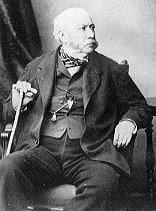Charles Philip Yorke, 4th Earl of Hardwicke
|
The Right Honourable The Earl of Hardwicke PC |
|
|---|---|
 |
|
| Postmaster General | |
|
In office 1 March 1852 – 17 December 1852 |
|
| Monarch | Victoria |
| Prime Minister | The Earl of Derby |
| Preceded by | The Marquess of Clanricarde |
| Succeeded by | The Viscount Canning |
| Lord Privy Seal | |
|
In office 26 February 1858 – 11 June 1859 |
|
| Monarch | Victoria |
| Prime Minister | The Earl of Derby |
| Preceded by | The Marquess of Clanricarde |
| Succeeded by | The Duke of Argyll |
| Personal details | |
| Born |
2 April 1799 Sydney Lodge, Hamble le Rice, Hampshire |
| Died | 17 September 1873 (aged 74) |
| Nationality | British |
| Political party | Conservative |
| Spouse(s) | Hon. Susan Liddell (c. 1810–1886) |
Admiral Charles Philip Yorke, 4th Earl of Hardwicke PC (2 April 1799 – 17 September 1873), was a British naval commander and Conservative politician.
Born at Sydney Lodge, in Hamble le Rice, Hardwicke was the eldest son of Admiral Sir Joseph Sydney Yorke, second son of Charles Yorke, Lord Chancellor, by his second wife, Agneta Johnson. He was a nephew of Philip Yorke, 3rd Earl of Hardwicke. He was educated at Harrow and at the Royal Naval College, where he was awarded the second medal.
Hardwicke entered the Royal Navy in May 1815 as midshipman on HMS Prince, the flagship at Spithead. Later, he served in the Mediterranean, on HMS Sparrowhawk (18) and HMS Leviathan (74) then subsequently HMS Queen Charlotte (100), the flagship of Lord Exmouth, by whom he was entrusted with the command of a gunboat at the bombardment of Algiers. He later joined HMS Leander (60) under the flag of Sir David Milne, on the North American station, where he was given the command of the Jane, a small vessel carrying dispatches between Halifax and Bermuda. He was then appointed acting lieutenant of HMS Grasshopper (18) and after a few months commissioned in the rank of lieutenant in August 1819. The next October, he joined the frigate HMS Phaeton on the Halifax station, until appointed to the command of HMS Alacrity in 1823 on the Mediterranean station, in this post he was employed, before and after he obtained the rank of captain in 1825, in watching the movements of the Turko-Egyptian forces and in the suppression of piracy.
...
Wikipedia
